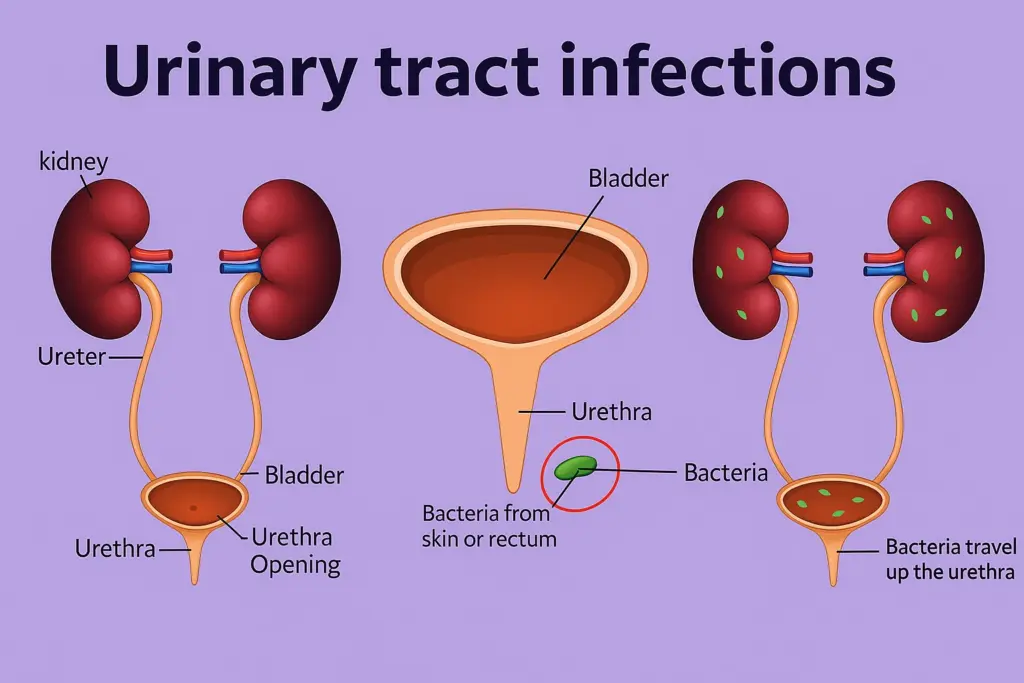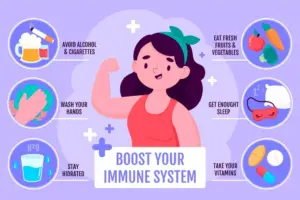Understanding UTI Treatments: What You Need to Know

Urinary tract infections (UTIs) are an extremely common form of bacterial infection, affecting millions on an annual basis, especially women. Indeed, studies show that one in two women will have at least one UTI at some point in their lives. Though UTIs can be uncomfortable and, yes, occasionally painful, the silver lining is that they’re typically easy to treat when managed properly.
UTIs can be life-disrupting, and it’s important to diagnose and treat them early. Untreated, a simple bladder infection can lead to a more serious kidney infection and other complications. This guide will help you identify symptoms, understand treatment options, and prevent additional infections.
Types of Urinary Tract Infections
Not all UTIs are created equal—they can affect various parts of the urinary tract with differing symptoms and severity:
- Cystitis (Bladder Infection): The most common variety, it leads to regular urination, burning, and darkened urine.
- Urethritis (Urethral Infection): Less frequent than a bladder infection, this can produce such symptoms as a burning sensation during urination, often as a result of bacteria or irritants.
- Pyelonephritis (Kidney Infection): This is a more troubling infection because it can be accompanied by a fever, back or side pain, and nausea, and must be treated promptly.
Common Symptoms of a UTI
Spotting the symptoms early can encourage you to seek treatment before the infection becomes more severe. Key symptoms include:
✔ Frequent need to urinate and may feel the need to urinate, but are unable to even when the bladder is empty
✔ Burning or stinging when passing urine
✔ Cloudy, dark, foul-smelling, or bloody urine
✔ Lower abdominal or back pain
✔ Fever or chills (indicative of a possible kidney infection)
If you have any of these, it’s vital to move fast.
Causes and Risk Factors
UTIs happen when bad (mostly valueless variety of E. coli) bacteria enter the urinary tract. This risk is compounded by several factors:
🔹 Sex: As compared to men, women have a shorter urethra, thus making it simpler for bacteria to enter the bladder.
🔹 Menopause: The lowering of oestrogen levels leaves the urinary tract with less protection.
🔹 Poor hygiene or using a catheter: This can increase bacterial exposure.
Knowing these risks may help you take measures to avoid them.
Treatment Options
Antibiotics (MAIN TREATMENT):
The majority of UTIs must be treated with antibiotics, such as trimethoprim or nitrofurantoin. It’s important to finish the full course, even if symptoms get better, so you can prevent recurrence or antibiotic resistance.
Self-Care at Home:
In addition to the antibiotics, you can:
✔ Stay well-hydrated to help cleanse bacteria out.
✔ Stay away from caffeine and alcohol, which can be bladder irritants.
✔ Place a hot water bottle on your lower abdomen to help relieve cramps.
When UTIs May Resolve on Their Own:
Out of an abundance of caution, many mild cases are treated the same way as more serious ones are, though some may improve with over-the-counter pain medications and watchful waiting. If they last for more than 48 hours, consult a doctor.
Recurrent or Complicated UTIs:
If you have recurrent UTIs (three or more in one year), you may need more tests or a referral to a specialist to try to determine the cause of the problem.
When to See a Doctor
Seek medical advice if:
⚠ Symptoms are getting worse or not better in a few days
⚠ You start running a fever or feeling sick to your stomach, or have very bad back pain (which could be a sign of a kidney infection)
⚠ Symptoms come back when done with the antibiotics
Chase Lodge Hospital offers rapid and efficient treatment according to your needs.
Preventive Measures
Here are some basic steps you can take to help reduce your risk:
🔸 Wipe front to back after going to the bathroom.
🔸 Keep hydrated to help wash bacteria out.
🔸 Pee after sex, unclogging the peephole.
🔸 Stay away from scented products near your genitals, as these could irritate.
Conclusion
UTIs are frequent but not something to ignore. Early intervention will stop complications from progressing, so if you think you have an infection, don’t delay — seek medical advice as soon as possible.
“If you suspect you have a UTI or are having symptoms, don’t wait. Meet with one of our specialists at Chase Lodge Hospital and talk through what treatment might be right for you.”
More information: NHS: Urinary Tract Infections (UTIs)


